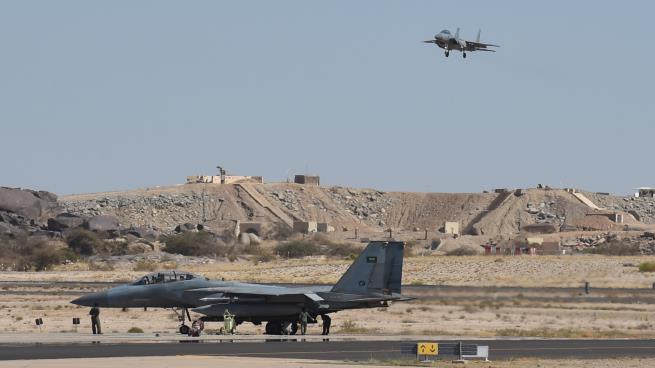
Mohammed bin Salman, the Crown Prince of Saudi Arabia, became alone in the war in Yemen after the UAE withdrawal of its forces, after more than four years of the failed war.
The New York Times reported that the Saudi war in Yemen had reached a dead end.
The newspaper said the sharp withdrawal of bin Salman’s ally raises questions about the ability of the Saudi to lead the war on its own.
Since the start of the Saudi intervention in Yemen, the war has been the war of bin Salman, who was seen in official pictures surrounded by generals checking the maps, inspecting a helicopter, and wearing the pilot’s ear while onboard a military aircraft.
Armed with harsh comments from Trump officials, ben Salman hopes Washington will help to compensate for the withdrawal of the UAE with new US military support, according to diplomats familiar with the talks. But Congress’s opposition to the war makes it unlikely, leaving Saudi Arabia with some modest choices.
“It hurts him because it hurts his credibility as a successful leader,” the paper quoted analyst at the Gulf Arab Institute Christine Smith Dewan as saying. “There are not many Saudis in Saudi Arabia who feel that what is happening is a wise investment for the future.
The newspaper said that UAE officers, weapons and money played just as much behind the scenes as an important part of the cohesion of a complex alliance of Yemeni militias that exchange hostility, which is already struggling to fill the power vacuum left by Emiratis.
Analysts say that as a result, the UAE withdrawal makes the Saudi military victory more likely.
The New York Times quoted the Washington Institute for Near East Policy researcher Michael Knights as saying in a report this week that Saudi Arabia could prevent peace from collapsing and draining the Huthis on a never-ending northern front. But the UAE had only military power and local allies, which represents a real threat that could defeat the Houthis.
Saudi Arabia can not easily pull out of Yemen because of its 120,000-mile border with Saudi Arabia, the paper said, adding that the growing pace of the Houthi attacks on Saudi Arabia makes it difficult for them to withdraw.
Even if the Huthis stop their attacks, Saudi Arabia argues, they could pose a greater threat if they were allowed to tighten their grip on Yemen.
“There is no way to escape,” says the head of the Sanaa Center for Strategic Studies.
Western diplomats and others from the United Nations hope the UAE pullout of Salman will push for an agreement with the Huthis, such as ending the Saudi-led air campaign, with some security measures along the border.
But diplomats and analysts say bin Salman has strengthened his power as crown prince and de facto ruler under his father, King Salman, and faces a shaky local pressure to end the war in Yemen.
The Crown Prince appears to be suppressing any opposition within the royal family, while the Royal Court controls the media, with reports of casualties among the Saudi air force.
Former US ambassador to Riyadh Joseph Westphal, who served in Riyadh from the start of the intervention in Yemen until 2017, believes that one of the reasons that have not led to more opposition at home is that the fear of Iranian influence is not limited to the royal family.
The withdrawal of the UAE weakened the Saudis’ ability to negotiate, raising the potential cost of bin Salman in any negotiations to end the Huthi attacks.
The newspaper pointed out that Saudi hopes for greater involvement of US intelligence, at least and perhaps deployment of special forces teams or military advisers, diplomats said.
The New York Times coincides with the announcement by the Saudi envoy to the United Nations Abdullah al-Maalami that it is time to put the war in Yemen to an end and end the Huthi era.
He vigorously defended his country’s stance on criticism by UN Under-Secretary-General Mark Lokoc earlier Thursday of its delay in providing financial aid to Yemen.